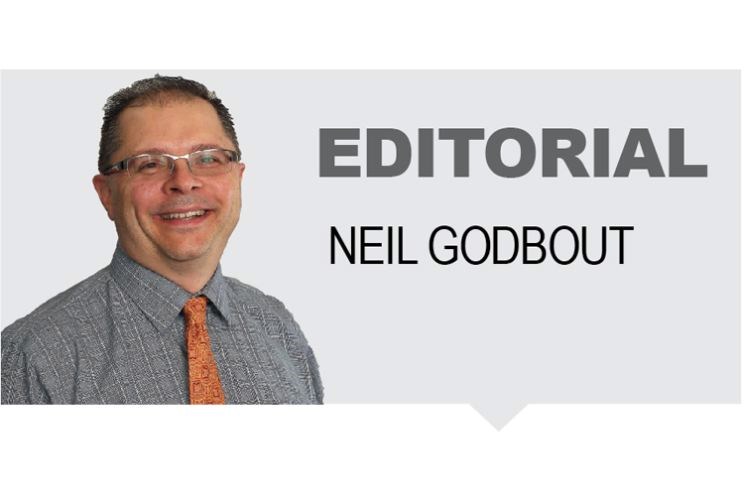There are stories throughout history, from Shakespeare’s Hamlet to the excellent 2013 movie Prisoners, directed by Canada’s Denis Villeneuve and starring Hugh Jackman, about how people can lose their humanity in moments of crisis.
The transformation from decent and caring to cruel and evil happens quickly, yet the person it happens to is completely blind to it. Their pain, anger and fear, however justified, consumes them so fully that they fail to see the tragic irony of how much pain, anger and fear they are now causing others. It is all explained away as fighting for oneself and having the courage to do whatever’s needed to make things right and normal again.
Or maybe too many people are just plain selfish jerks who think their hissy fits are freedom of speech and expression.
Either way, threatening a local Member of Parliament and his family with harm and even death is wrong and unacceptable.
Cariboo-Prince George MP Todd Doherty took to social media Monday with a short but firm message. He won’t stand for it and he will do what is necessary to protect himself and his loved ones.
Threats are not protected speech. They are a criminal offence. “I was just joking around,” “I was having a bad day” and “my life sucks” aren’t accepted as excuses. Threatening to harm any other individual, whether it’s done verbally or in writing, is a crime, both legally and morally.
Making threats is taken so seriously because they are incredibly destabilizing to an otherwise peaceful society. Threats are just like viruses – invisible social germs able to quickly spread sickness through the population, sparking stronger threats and then violence.
How well do you think Doherty and his wife are sleeping these days? How vigilant do you think they now are when they go to the store or go to work? How nervous do you think they are when approached by someone they don’t recognize? How safe do you think they now feel in their own home?
Now they are angry and scared.
And for what?
Do the bullying idiots, frightened fools or pathetic crybabies – take your pick – really believe the Member of Parliament in the opposition party, not even a member of the ruling government party, has the authority to solve their problems with a snap of his fingers?
As with every crisis, the COVID-19 pandemic shows humanity at its best and worst. Individuals reveal who they really are. They meet the challenges head-on and offer help to others or they feel sorry for themselves and lash out at anyone and everyone not hurting as much as they think they are.
Which one are you? Are you a symptom of the disease or a dose of the cure?
Be honest.
It’s OK to be angry if you’ve lost your job in the last year and now you might lose your vehicle and your home. You have good reasons to be mad and you’re not alone.
It’s OK to be upset if you’ve lost a loved one in the last year, to COVID-19 or some other health issue. You have good reasons to be sad and you’re not alone.
It’s OK to be frustrated with political and health leaders about the pandemic restrictions and the vaccine rollout. You have good reasons to be ticked off and you’re not alone.
Your neighbours are scared and worried, too.
Canadians from coast to coast are frightened, too.
Your Member of Parliament and other health and political leaders are afraid enough already without having to be terrified of the very people they are trying to help.
Look past your pain to the people who can inspire you, who can help you in ways small and large, with their words and their actions. Look for ways to offer support, in words or actions, to others who are in an even worse situation than yours (and be inspired by the strength and resilience they are showing).
Don’t surrender your humanity at the very moment our individual and collective capacity for kindness, caring and sacrifice for one another is needed the most.



